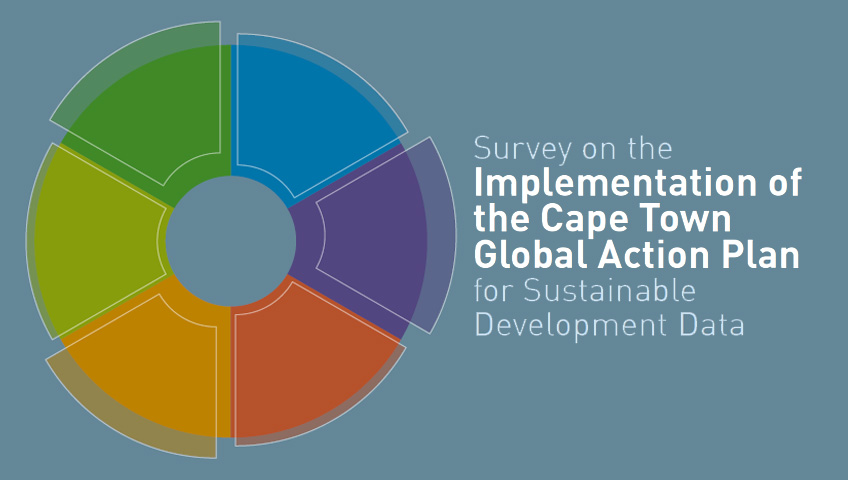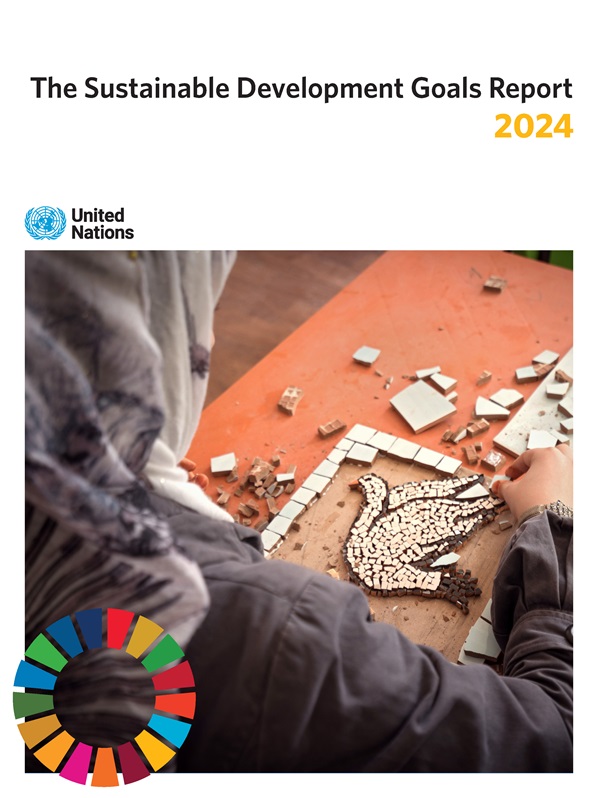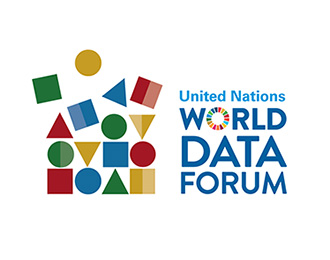Events
Fifteenth meeting of the IAEG-SDGs
The fifteenth meeting of the Inter-agency and Expert Group on Sustainable Development Goal Indicators (IAEG-SDGs) will be held in person from 21 to 23 October 2024 in Oslo, Norway. It will be co-hosted by the UNDP Global Policy Centre for Governance (GPCG) and Statistics Norway.
The meeting will follow the same format as previous in-person IAEG-SDGs meetings. There will be a members-only meeting taking place during the first day (21 October) and plenary sessions taking place during the next two days (22 - 23 October). For the plenary sessions, all countries, international and regional agencies and entities, and other stakeholders will be invited to register and apply to attend.
The registration period to attend the plenary session in person closed on Friday, 2 August 2024. All registrants have been notified of their registration status.
Note: Neither UNSD, GPCG nor Statistics Norway offer supporting funds to facilitate the travel of participants. Attendance must therefore be completely self-financed and self-arranged, including travel, accommodation and any other related expenses.

Resources for participants
-
Plenary sessions agenda (PDF)List of participants (PDF)Information note for participants (PDF)To check if your citizenship requires a visa to enter Norway (Link)Special side events
- Dialogue on Building Trust in Statistics to Counter Disinformation in an Information Overloaded World (concept note)
- Two Years' Journey on Citizen Data: From Bangkok to Oslo (concept note)
Plenary session recordings on YouTube:
Presentations
-
Agenda item 2.
-
Updates on the High-Level Political Forum, Summit of the Future and the SDG Reports 2024
-
Agenda item 3.
-
Working groups and task team of the IAEG-SDGs
-
Agenda item 4.
-
Data availability review/tier classification updates
- a. Data availability review and tier reclassification (PDF)
-
Agenda item 5.
-
2025 Comprehensive Review
-
Agenda item 6.
-
SDG monitoring and indicator implementation
-
Agenda item 7.
-
Data disaggregation and inclusive data
- Statistical inclusion of refugees, IDPs and stateless persons (PDF)
- Collaboration as a tool to improve inclusive data (PDF)
- UNHCR’s efforts to identify and publish robust thematic statistics on forced displacement and statelessness, Lauren Herby (PDF) (PDF)
- The Gender Snapshot 2024 (PDF)
- Connecting the dots: disability data findings at the national level that can reach the global level (PDF) (PDF)
- Lightning talks and discussion
-
Agenda item 8.
-
2030 Agenda and beyond
-
Agenda item 9.
-
Data innovations, communication and link to policy
- Using key indicators in SDG communication(PDF)
- Data innovations for SDG monitoring (PDF)
- Quality of Life initiative (PDF)
- The use of mobile phone data for SDG Indicators (PDF)
- Innovative uses of non-traditional and integrated data for SDG monitoring: A scoping review (PDF)
- Lightning talks and discussion
- SDG data communication of Korea (PDF)
- Communicating SDG statistics for Polish cities (PDF)
- Small Area Estimation models for health (PDF)
- AI through the lens of official statistics and the SDGs(PDF)
- UNEP-WCMC work on nature metrics, indicators, and online tools (PDF)
- Leveraging New Datasets for Evidence-Based Policymaking (PDF)
- Enhancing energy data for robust SDG 7 related policies and beyond: Insights from Eastern Africa (PDF)
-
Agenda item 10.
-
Data partnership and capacity development for the SDGs
- Data for a better world: strengthening partnership and building capacity for Sustainable Development Goals (PDF)
- Academy of young ambassadors for the SDGs (PDF)
- Empowering data partnerships and capacity development for achieving SDGs: an Indian perspective (PDF)
- Power of Data (PDF)
- Lightning talks and discussion
- Indicator Guidelines for Policy Monitoring (in the Pacific) (PDF)
- Human Rights data partnerships (PDF)
- SDG capacity development resources : SDG Indicators 8.4.1/12.2.1 & 8.4.2/12.2.2 (PDF)
- Accelerating the SDGs monitoring through Geospatial data and partnerships (PDF)
- Tracking the HIV epidemic and response (PDF)
- Enhanced monitoring through the family of Copernicus Services – SDGsEYES (PDF)
-
Agenda item 11.
-
UNSC 56: Workplan and next steps (PDF)
QUICK LINKS
- 2030 Agenda for Sustainable Development
- SDGs Database
- 2025 Comprehensive Review Process
- Survey on the Implementation of the Cape Town Global Action Plan for Sustainable Development
Data

- SG's progress report 2024
- Statistical Annex 2024
- SDGs report 2024

- Gender Snapshot 2024
- UN Data Commons for the SDGs
-

- Medellin Framework for action on data for sustainable development
- Hangzhou Declaration
- Bern Data Compact
- Cape Town Global Action Plan for Sustainable Development Data
- Dubai Declaration
- Global data community's response to Covid-19
- Statistical Commission